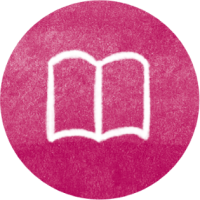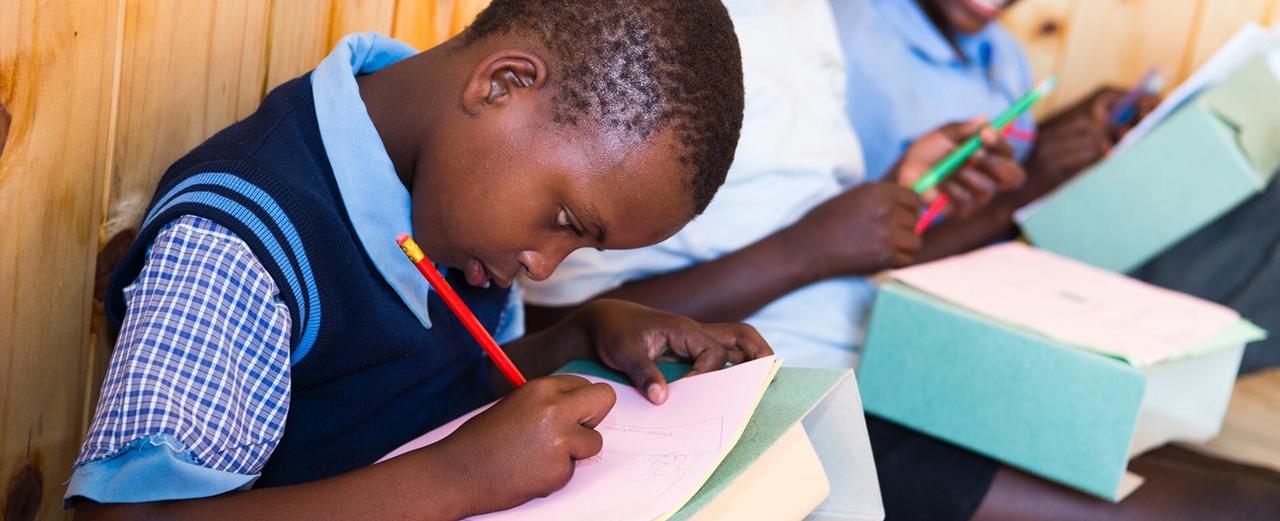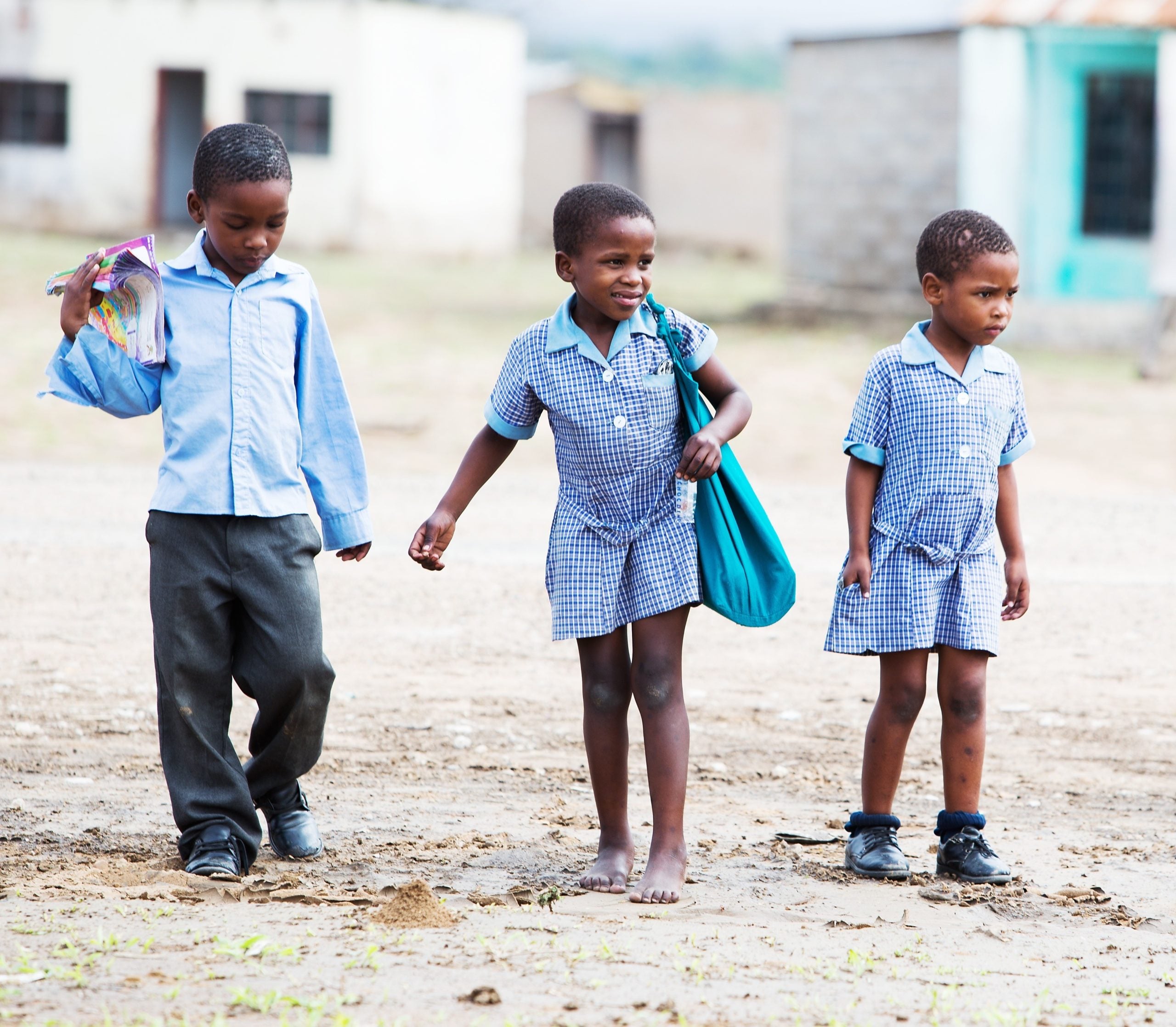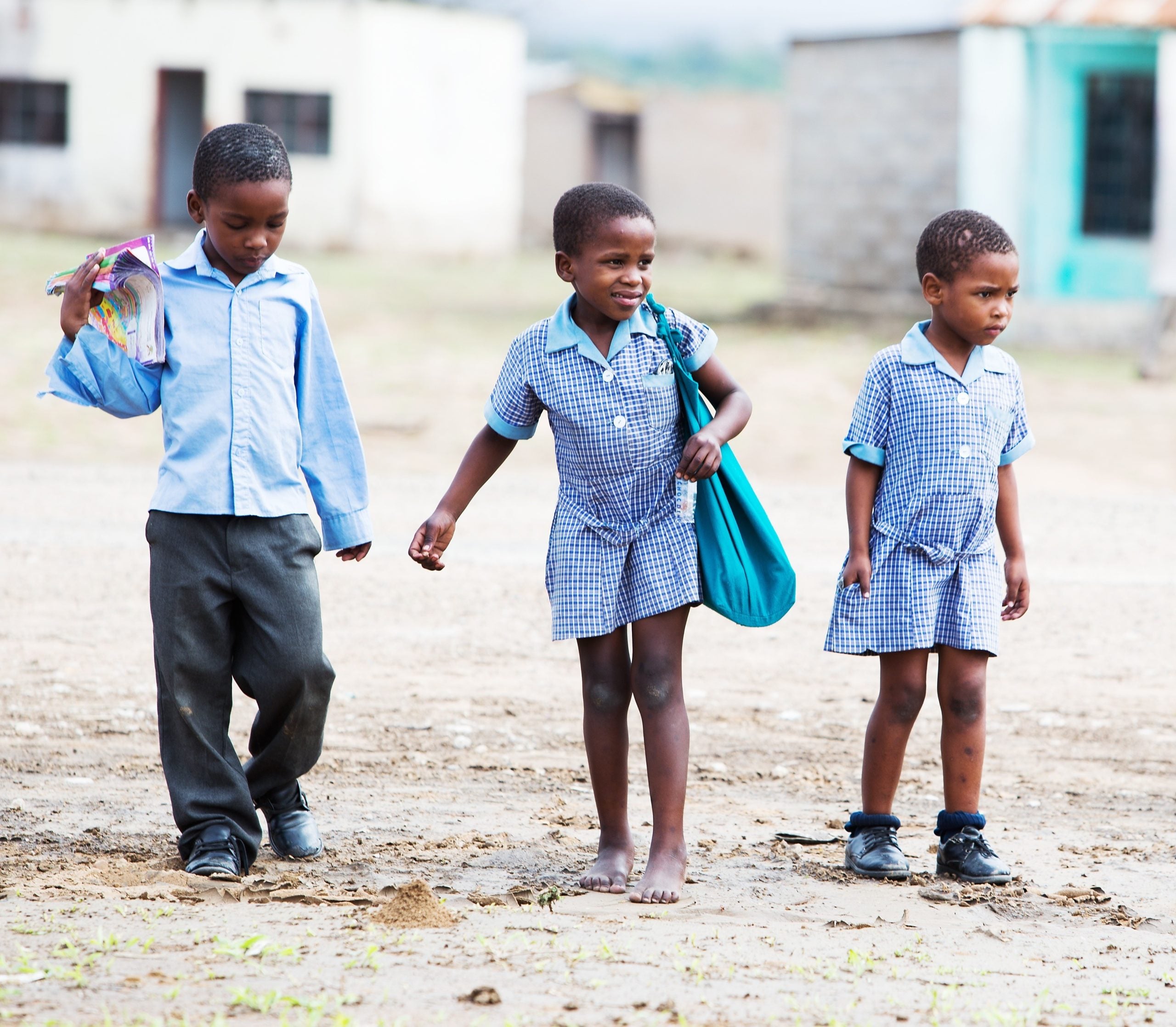Day 8
An afternoon of homework help for a child in South Africa
 Support for educational equity
Support for educational equity


Educational opportunities for children from precarious backgrounds in South Africa

need
Homework and life support for children and young people in South Africa.
activity
Local partner organization looks after orphans and children from precarious backgrounds after school, supports them in their studies and prepares hot meals.
Measurable performance
Number of hours of afternoon care and number of children benefiting from homework help and hot meals.
Result
Children’s academic performance improves, absences decrease and more pupils graduate from school.
Systemically relevant impact
Improved educational opportunities and career prospects for poor children, increased social mobility and more educational equity
background


The good deed
AboutSouth Africa

Pretoria
Capital city
58,558,270
Population
$11,756
Gross domestic product
per capita per year

Rank 113 of 189
Human Development Index
(Human Development Index)


